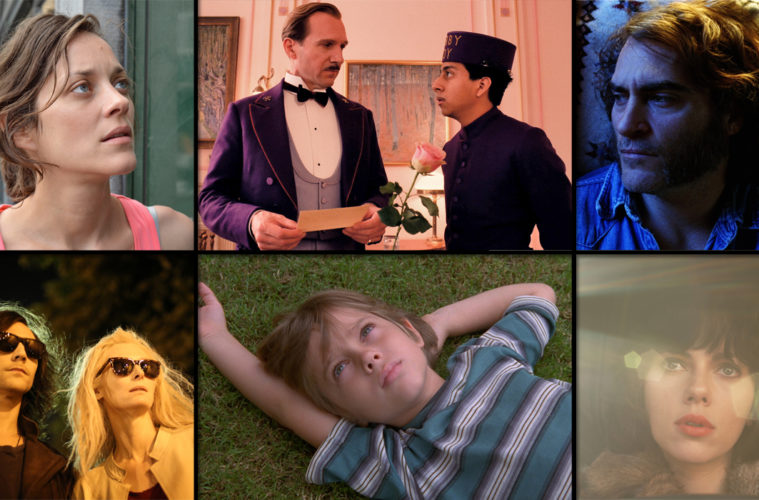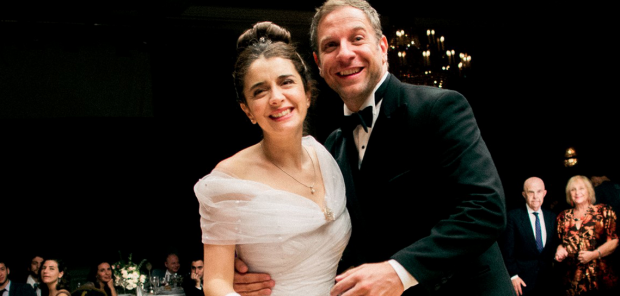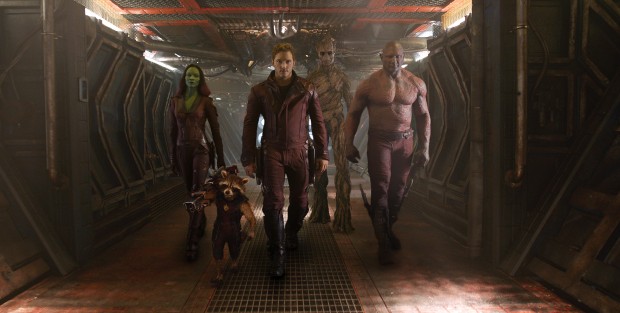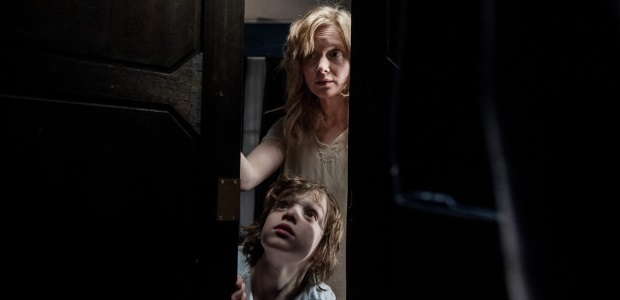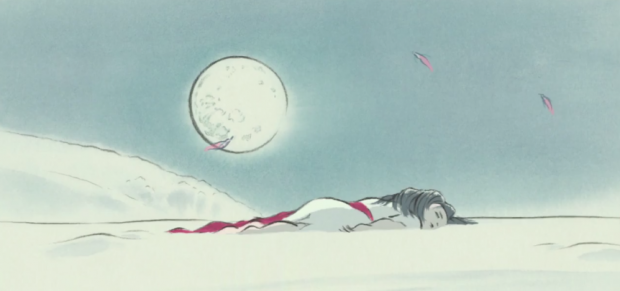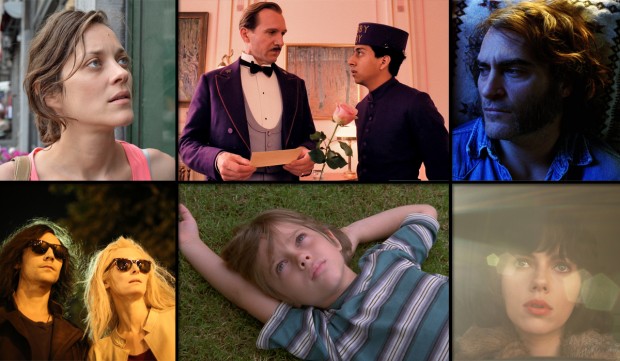
For our final year-end feature, we’re providing a cumulative look at our favorite films of 2014 here at The Film Stage. Over the last few days a variety of contributors have published their personal top 10 lists, resulting in 103 films being mentioned, and we’ve pared it down to an even 50. To calculate the list we gave 10 points to everyone’s #1 pick, 9 points to their #2 pick, and so forth, with half a point going to honorable mentions — in the case of a tie, the film that placed higher on a respective list was given the nod. So, without further ado, check out our last rundown of 2014 below, our complete year-end coverage here, and return in the coming weeks as we look towards 2015.
50. The Rover (David Michôd)
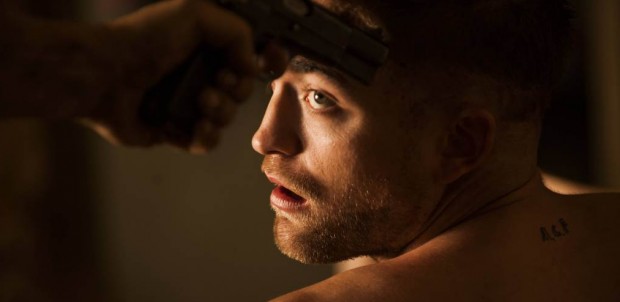
A cold-blooded, powerful and moral thriller staring Guy Pearce and (a virtually unrecognizable) Robert Pattinson as men traversing an apocalyptic landscape in rural Australia. A bleak and compelling nightmare lensed by Natasha Braier, The Rover is a chillingly sparse picture, cementing David Michôd as a new master. – John F.
49. Mommy (Xavier Dolan)
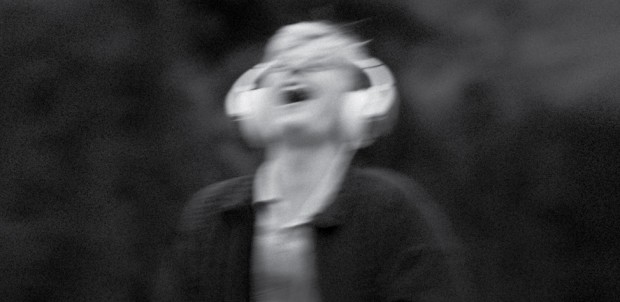
Writer-director Xavier Dolan’s characters in Mommy rarely feel like people you’d want to spend any length of time with, which is precisely why the film is so affecting. Each have their own unique quirks that make them entirely human and draw you in. You root for them to succeed, and Dolan takes a twisted joy in breaking them in various ways. This is a richly affecting film about the notion of controlling your own life when your child, your responsibility, seems hell-bent on derailing it. Easy answers aren’t given, and there’s a key moment in the film that rings incredibly hollow — a feeling taken away just when you actually bite into the lure. Dolan’s work is moving and painfully beautiful, with astounding performances throughout. – Bill G.
48. Jauja (Lisandro Alonso)
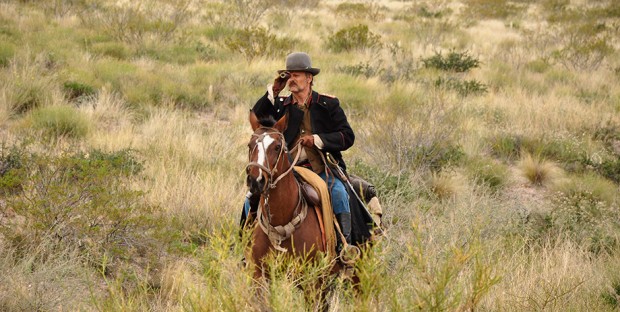
After seeing Jauja, I believe I remarked to my cinephile compatriots that it was the first Lisandro Alonso to work thematically as well as formally — that, finally, his considerable talents went towards more than a prankster-ish slow-cinema exercise. A couple of months of later, I honestly forget what the “meaning” I derived from the film might have been, though I think it was some nonsense about lineage and the passage of time and what not. But I don’t believe that really matters, for what’s made Jauja stay with me is its pure beauty — the synchronicity of light, movement, landscape, and even the physical presence of its star. – Ethan V.
47. They Came Together (David Wain)
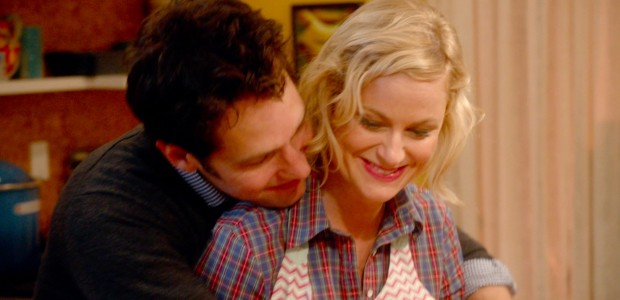
Five films in and with a bevy of other projects, one will certainly by now know if they click with the humor of David Wain. His latest feature, an affectionate dismantling of the romantic comedy genre, marks his most consistent and, for my money, the funniest comedy of the decade thus far. In an era where much of the spoof genre lazily repeats scenarios for cheap laughs, They Came Together is a remarkably brilliant dissection of tropes, led by two of the most likable actors in Hollywood, not to mention a gathering of exceptional (and unexpected) supporting players. – Jordan R.
46. Coherence (James Ward Byrkit)

A massively overlooked gem from 2014, Coherence is the cream of the science fiction crop whether my next two selections accompany them within the genre or not. It’s a bona fide head-scratcher bringing the Schrodinger’s Cat conundrum (popularized in The Big Bang Theory) to life before our eyes. A working knowledge of the physics definition of the title definitely helps get a foothold closer to solving its mysteries, but this puzzle of doppelgängers, coded boxes, and quasi-time travel delights in its impenetrability, too. It also proves how a great film isn’t just about A-list stars or big budgets. All you need to manufacture a suspense thriller spanning infinite dimensions is a single set. – Jared M.
45. A Most Violent Year (J.C. Chandor)
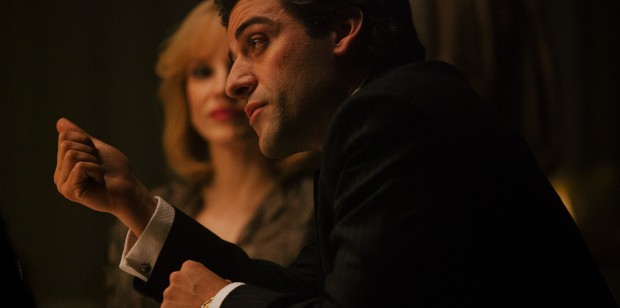
The Sidney Lumet talk is apt, as J.C. Chandor’s A Most Violent Year certainly captures the scope and pulse of the late master’s dramas. But this is a dark-side-of-the-American-dream epic with a reach all its own. Oscar Isaac and Jessica Chastain create the most compelling couple of the year, and by the time the credits role, the viewer feels as if they have just witnessed the most significant moments in the birth of a giant. – Chris S.
44. Wild Tales (Damián Szifron)
Damián Szifron launches a satirical and visceral dissection of the social and political currents running underneath his native Argentina, but Wild Tales is the opposite of a stuffy, calculated screed. Playing with a touch of the pulp ghoulishness of Tales of the Crypt, Tales features plenty of darkly comic surrealism that’s been subtly grafted onto modern social anxieties. Whether it’s a plane full of strangers learning of the demented connection that bonds them, a waitress at a road-side diner forced to serve the author of her family’s misery, or a demolitionist waging a war against an impound lot, Wild Tales finds a deeply entertaining catharsis in isolated fragments that begin as revenge, only to crossover to examine ideas about justice and human morality. Taken as separate stories, these vignettes are entrancing, but, most impressive for an anthology, when assembled they create a fearsome portrait of Argentina itself, one unlikely to fade from memory. – Nathan B.
43. Stranger by the Lake (Alain Guiraudie)

A hyper-erotic thriller presented as a waking dream, in which acts of love and violence — both acts of passion alike, if little else — alternate between escape-defying proximity and distances so great they can hardly be said to have been seen at all. Also the “pulpiest” title on this list, sure, but pulp that’s dictated by incredibly consistent formal dressing from first step to last is always going to be high art in my eyes, and nothing in 2014 hit that (ahem) sweet spot to such a degree. – Nick N.
42. Guardians of the Galaxy (James Gunn)
What’s so great about the big-screen adaptation of one of Marvel’s more obscure properties is that director James Gunn turned it into the kind of movie he wants to see. The often-hilarious space opera about a band of misfit heroes recalls the adventurous spirit of Lucas and Spielberg’s golden age, when Star Wars and Indiana Jones reigned supreme. Defined by thrilling battle sequences and pitch-perfect casting (see pro wrestler Dave Bautista‘s amusing turn as Drax), the work is definitely one of the most satisfying viewing experiences I’ve had in years. – Amanda W.
41. Selma (Ava DuVernay)
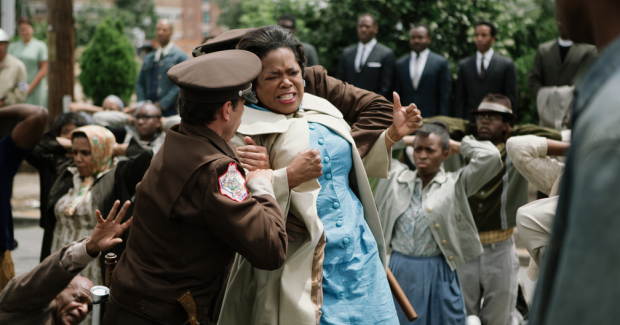
If 2014 is considered the “year of outrage,” the 2015 wide-release date for Selma arrives far too late. A visceral frontline examination of Martin Luther King Jr’s civil rights marches in Selma, met with extreme violence (including murder) as Alabama’s good ol’ boys fight to maintain status quo prior to President Johnson’s intervention and the passage of the Voter Rights Act. Undoubtedly this film will provoke conversations within a current context (one early moment seems eerily similar to Eric Garner’s final moments), and Ava DuVernay’s direction ads a sense of raw immediacy to Paul Webb’s script. It also presents King (David Oyelowo), George Wallace (Tim Roth), and Johnson (Tom Wilkinson) as complex, flawed men, each with their own motivations and ideals of justice. – John F.
40. John Wick (David Leitch and Chad Stahelski)
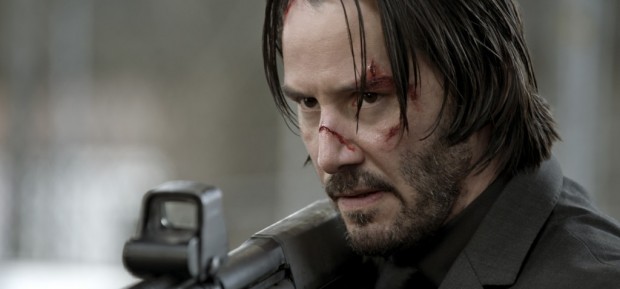
John Wick is a refreshingly streamlined action movie. There’s not an ounce of fat in David Leitch and Chad Stahelski‘s film, and Derek Kolstad‘s script gets right everything so many revenge pictures get wrong. The familial scenes in the Taken movies, for example, are an afterthought — crap you have to trudge through to get to the shootouts. Actual time and care was put into the set-up of John Wick. When Wick’s dog dies, it’s an earned moment for the character and the film. It’s a strangely heartfelt movie, and far more sincere than most pieces of Oscar bait. What follows that effective set-up is a wildly entertaining action movie, filled with a variety of set pieces, fun kills, style, and a world that begs for a sequel. – Jack G.
39. Edge of Tomorrow (Doug Liman)
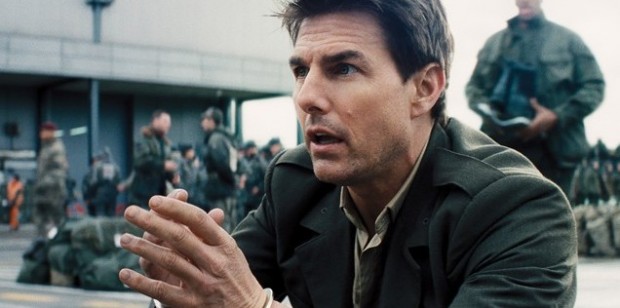
We need more summer blockbusters like Edge of Tomorrow. Doug Liman‘s film doesn’t take itself terribly seriously, nor is it as light as a piece of gum wrapper — while also delivering on almost every level. It’s a fun blockbuster with the right amount of dramatic stakes. Just as exciting as the set pieces are the performances from Tom Cruise and Emily Blunt. Blunt is vulnerable, funny, and badass as Rita, playing the real hero of the movie — she arguably drives the narrative forward more than Cage (Tom Cruise). Cruise’s blockbuster image is initially subverted and milked for a great comedic effect. Once he’s in full action-hero mode, though, there’s still plenty of sharp humor in this ideal action movie. – Jack G.
38. The Tribe (Myroslav Slaboshpytskiy)
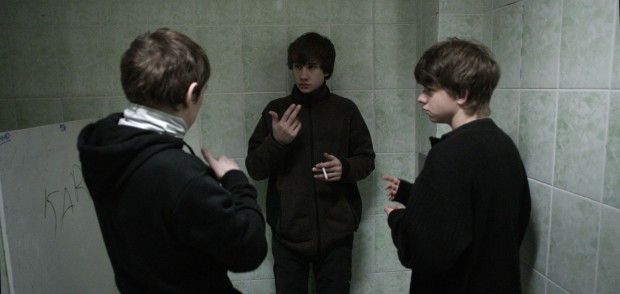
Devoid of any spoken words, music, voice-over or even subtitles, Myroslav Slaboshpytskiy‘s debut feature film The Tribe is communicated through sign language, for all the characters are deaf. This provides a unique challenge for any audience member not versed with how to sign, as the filmmaker provides no direct explanation of what characters are actually saying. While this may initially seem daunting, a viewer’s patience and keen observation is rewarded by a haunting cinematic experience that truly is unlike anything else this year. – Raffi A.
37. Hellion (Kat Candler)
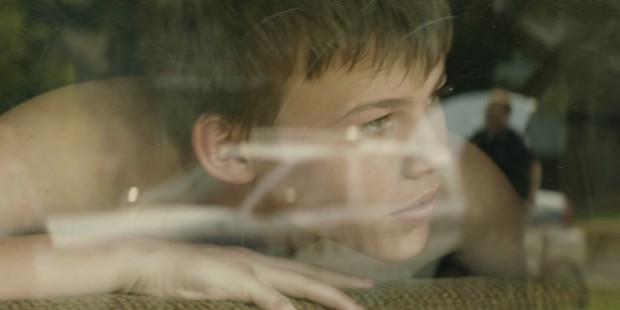
The knocks on Candler‘s latest feature seem to stem from a place of stark drama overkill on behalf of the critics watching. Had they seen it before all those that already saturated the market, I wonder what the consensus would have been. For me it’s simply the type of film I love to watch. Emotionally powerful, I never felt manipulated once as each character progression occurs naturally until its inevitable climactic moment of nail-biting violence, stemming straight from the heart. Aaron Paul stands out as a broken father unable to let go of the love he thought would be forever and Josh Wiggins is a revelation as the wild yet sensitive son traveling a dangerous road to maturity. – Jared M.
36. Journey to the West (Tsai Ming-liang)
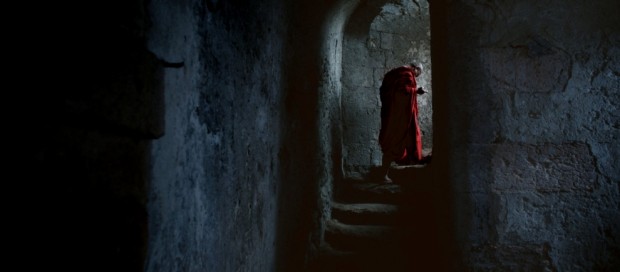
Remarkable for many reasons, chief among them that the shortest of any on this list — or just about any other, on any site, that’s counting down the year — is the one most open to interpretation, to say nothing of the most visually rigid and tightly controlled most encouraging a wandering, curious eye. A tortoise and the tortoise race between Lee Kang-sheng and Denis Lavant, slow cinema’s own weird game of Where’s Waldo?, a city symphony that uses screen space as well as anything in recent years, and a stealth addition to the slate of documentary-narrative hybrids. Journey was technically undistributed, but placed here because it a) was at least made available during a one-week online engagement this past spring, and b) is simply too accomplished a work to be overlooked on account of that small technicality. Here’s some good news: this wonder will be included on the Blu-ray release of Tsai’s prior feature (and TFS favorite), Stray Dogs. – Nick N.
35. The Babadook (Jennifer Kent)
Filmmaker Jennifer Kent‘s scary surprise hit packs a hell of a punch with imaginative visuals and visceral sound design. It also features two powerhouse performers in Essie Davis and child actor Noah Wiseman, who bring a jarring intensity to their roles. (When Davis’s cornered single mother unleashes a primal scream, every hair on my body stood on end.) More importantly, it’s one of the most terrifying depictions of quiet desperation ever committed to film, and therefore a welcome addition to the realm of quality horror. – Amanda W.
34. Locke (Steven Knight)
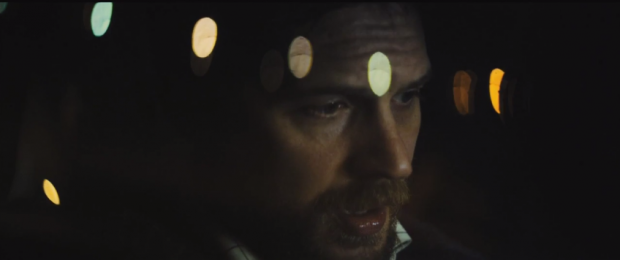
There is something thrilling about watching a person struggle against incredible odds. Lots of movies take this tact, though usually the odds and the struggle are world-shattering, like an alien invasion or a terrorist threat. In the case of Locke, Tom Hardy plays a man raging against his own poor decisions and their unexpected outcomes, and the movie is all the more thrilling because he does something rare in modern storytelling – he takes responsibility, assumes the risks and consequences, and does not shrug off the weight of what he has done or will do. In addition to being a beautiful formal exercise and a well-written character drama, this film is a flawless modern morality tale. – Brian R.
33. The Tale of the Princess Kaguya (Isao Takahata)
As one of the latest (and possibly last) Studio Ghibli releases, Isao Takahata‘s vision of an ancient Japanese folktale adds to a long list of distinguished anime triumphs. While computer-generated animation strives to look real, the hand-drawn Kaguya feels alive with its minimalist sound design and painterly style, which makes it all the more affecting and beautiful. – Amanda W.
32. Mr. Turner (Mike Leigh)
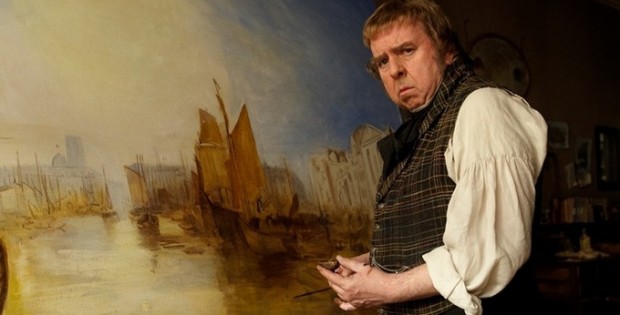
A biopic doesn’t quite describe Mike Leigh’s brilliant Mr. Turner , fronted by a career-best performance from Timothy Spall as legendary British painter J.M.W. Turner. Leigh’s first digitally shot film (from longtime collaborator Dick Pope), the haunting opening scene perfectly captures a landscape painting of a mid-career Turner. Leigh, known for his improvisational style, allows the viewer to enter this space as a fly on the wall, witnessing the quirks of Turner as embodied by Spall; the performance is fascinating recalling his work in Leigh’s Life Is Sweet. Establishing and breaking rhythms, like J.M.W. Turner, the film refuses to compromise. Engrossing and immersive, it’s both beautiful and occasionally challenging. – John F.
31. Foxcatcher (Bennett Miller)
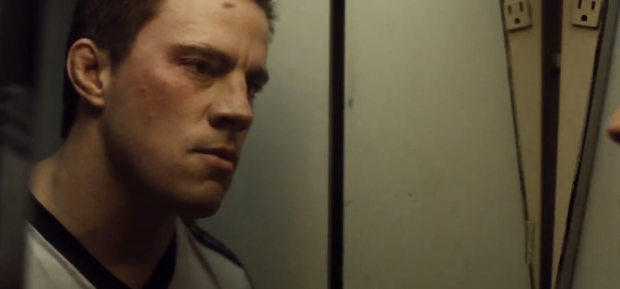
There is a distinctly Americana fascination and connection between director Bennett Miller’s Capote, Moneyball, and Foxcatcher. Centered on a struggling former Olympic wrestler and his unlikely relationship with a bizarre billionaire, the film is less about the actual details of what happened in this real-life tragedy and more about the insidious nature that is derived from excessive wealth and power. The film features a truly powerhouse trio of performances from Steve Carrell, Mark Ruffalo, and Channing Tatum. Eerily paced and unnerving at every turn, the fastidious study of these characters is both enveloping and thought-provoking. – Raffi A.
30. Citizenfour (Laura Poitras)
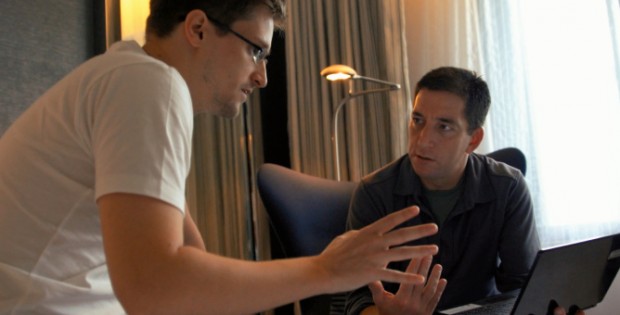
Perhaps the most important film of the year, Laura Poitras’ documentary captures the immediate aftermath following Edward Snowden’s leak of top-secret NSA documents to the world. For the majority of its runtime, we are placed in a Hong Kong hotel room with Poitras, reporter Glenn Greenwald, and Snowden as they sift through as much information as they can while Snowden tells you that everything you feared about our government was (and is) very much true. – Dan M.
29. Venus in Fur (Roman Polanski)
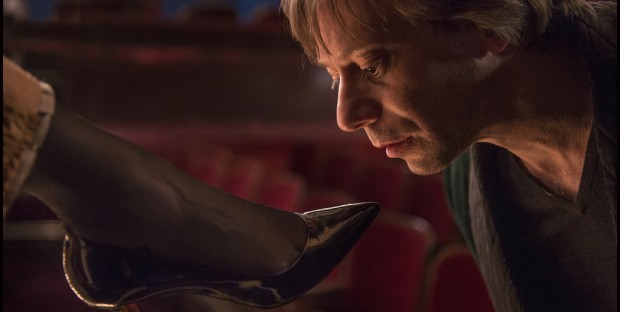
The director’s surrogate and doppelgänger, the director’s wife, a physical and mental game of one-upmanship, and the unabashedly blunt staging of a text that a toddler could point out as a direct corollary to the knotty onscreen dynamic. Shaped by a milking of every line, expression, tone of voice, gesture of body, shifting of light, angle, and cut, Polanski’s funniest film in decades, another close-quarter wonder, couldn’t be more “cinematic” if it relied on elaborate sets and high-wire formal trickery. – Nick N.
28. The Congress (Ari Folman)
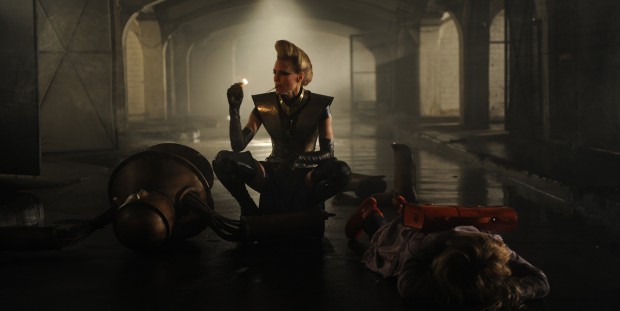
A rather brilliant and exciting commentary on celebrity, youth culture, and movie-making, The Congress is also an essay on identity and persona wrapped in a sci-fi adventure. Robin Wright plays herself, an aging actress who agrees to give up her craft to sell her brand to a big studio, who scans her into a database. Some years later, when she’s invited to a futuristic congress, the film shifts modes from live action to hand-drawn animation. One of the year’s most ambitious films, The Congress is a visual and intellectual feat: entertaining and engrossing throughout, while also densely packed, it delivers on the ambition it presents in the first act, and then some. – John F.
27. Moebius (Kim Ki-duk)
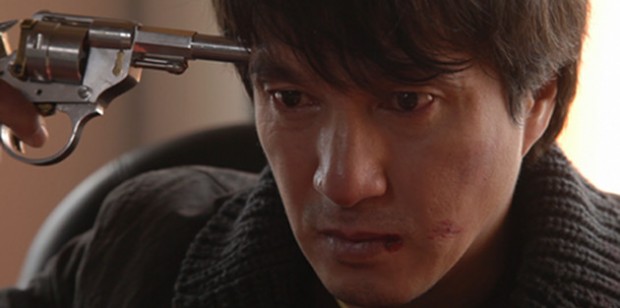
This will easily rank as one of the oddest entries here, and that’s precisely why I fell in love with South Korean director Kim Ki-duk’s Moebius. The film showcases the ability that keen direction can have on even the most unusual of scripts — and oddball. disturbing, over-the-top, horrific, and frustrating are all apt adjectives for Moebius, a film that works because the acting and direction never let the viewer relax. Everyone is incredibly committed to this film, which revolves around several males being castrated, and the nature of what it means to be a man without the normal means of sexual interaction. Silence has a profound effect as none of the characters speak. It’s not a silent film, as grunts and groans are heard, but the lack of dialogue is worked around with knowing looks or onscreen text seen through a phone or computer screen. Themes revolve around dealing with trauma, mental disturbance, infidelity, and family, as well as the obvious way we interact sexually. People walked out of my screening at last year’s Fantastic Fest, but I think that, if you can stomach the wicked actions, you’ll be rewarded with one of the year’s most unique cinematic experiences. This is precisely why film is a unique art form, where both sound and image can orchestrate what would otherwise be flat-out unbearable. – Bill G.
26. Calvary (John Michael McDonagh)

Precisely funny in the darkest way, considering a plot surrounding a priest awaiting his death by a parishioner searching for retribution against the Catholic church, this understated gem is all about its characters. Each is a little off-kilter; each a prospective suspect with the means and mindset to pull the trigger. Brendan Gleeson is at his best — conflicted, introspective, ever faithful — but so is John Michael McDonagh. I enjoyed The Guard enough, but the dialogue here is so sharp that I now see what everyone else did back then. – Jared M.
25. The Guest (Adam Wingard)
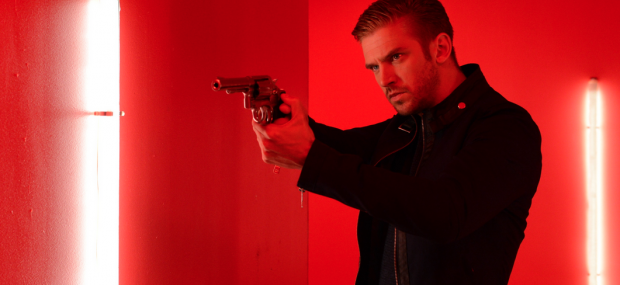
I could say plenty about the latest collaboration from director Adam Wingard and writer Simon Barrett. I could explain its fresh, contemporary spin on testosterone-fueled 80s-era action thrillers. I could elaborate on its sexy visuals, its pulsating soundtrack, and its unrelentingly cool style. I could most certainly drool over Dan Stevens‘ transformation into a hot and dangerous super solider. But mostly I just want to say, “Holy shit, this movie!” – Amanda W.
24. Horse Money (Pedro Costa)
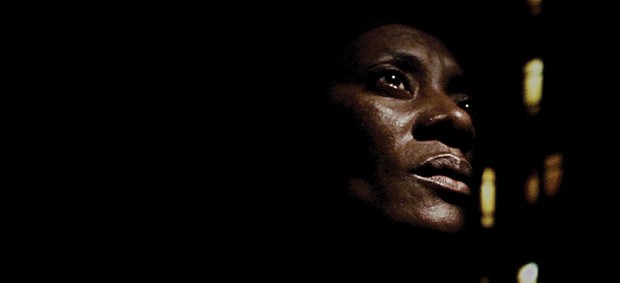
I attempted to write about Horse Money immediately after seeing it back in September. I think I did a fine job, considering the hectic strains of festival life, yet I don’t believe that I in any way did justice to just how different the world felt coming out of it — how surreal and inappropriate the gaudy, space-themed halls of the Toronto multiplex hosting the press screening seemed after spending 100 minutes in what seemed like a mix of hell, purgatory and probably some other dimension of the afterlife not even comprehensible to man. If only I could find the right Wire lyrics to quote… – Ethan V.
23. Stray Dogs (Tsai Ming-Liang)
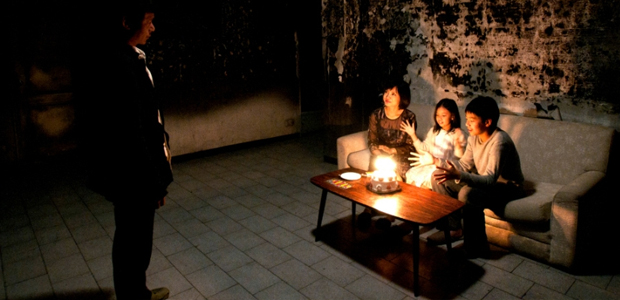
In Stray Dogs, three actresses play the same character, with the first of them departing after the film’s first shot and the third taking over after the film’s central ellipse. The Buñuelian tactic gives the film a narrative ambiguity that could easily feel cheap and pointless, but Tsai makes it work. Perhaps it’s because Stray Dogs qualifies unambiguously as “Slow Cinema,” with shots of eating or looking at murals taking up several minutes, making it easy for the impatient and skeptical to say that “nothing happens.” But Tsai’s style forces us to question conventions, and among those conventions is the way in which we make sense of narrative. The ambiguity is therefore not just earned, but crucial. Tsai is equally subtle and clever in a series of four non-consecutive shots in which the protagonist (Lee Kang-sheng) serves as a human billboard, where the personal and political are gradually privileged, his aesthetic decisions being central to everything the film has to say. Never is this more clear or well-done than in the stunning penultimate shot, the film’s longest, in which humans — or at least the better of us — are implicitly differentiated from stray dogs because of our ability to find solace and make sense of art. Or, at least, that’s one interpretation of it. Thanks to that narrative ambiguity, Stray Dogs is not just perfectly executed — it’s also a gift that keeps on giving. – Forrest C.
22. A Girl Walks Home Alone at Night (Ana Lily Amirpour)
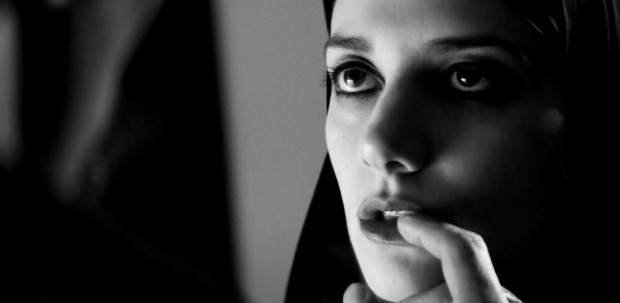
It might feature a skate-boarding, hijab-wearing bloodsucker, but A Girl Walks Home Alone at Night is much more than a hipster horror film. Set in a mythical landscape that feels like Quentin Tarantino and Tim Burton took a gig art-directing Iran, Girl establishes a raw and seductive edge that is also dreamy and wistful, enamored of Old Hollywood’s visual legacy, inspired by a rich independent heritage, and completely in love with its characters. Turning the tropes of Universal horror films on their head — one scene features a tawdry pimp discovering he’s the classic damsel in distress — Amirpour creates a wonderful character in Sheila Vand’s nosferatu. She’s not a monster, but a convergence of several cultural insecurities, wrapped in a feral, defiantly female shell. Crafted from the familiar, Girls’ best feature is just how fearsomely original and confident it feels. Eraserhead and Bride of Frankenstein have new, welcome company in the annals of filmdom. – Nathan B.
21. Snowpiercer (Bong Joon-ho)

The best piece of entertainment this year, and with plenty of brains. A train races across the globe like a bullet, harboring the last of our species. Inside, the survivors are divided by socio-economic status: rich to the front, poor to the back. Chris Evans’ Curtis starts a revolution. We watch it unfold. Riveting. Unforgettable. – Dan M.
20. Force Majeure (Ruben Östlund)
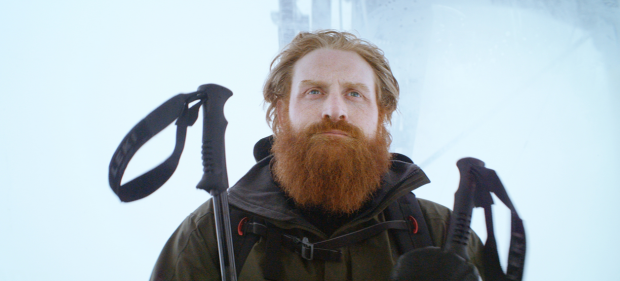
Beautifully simple yet breathtakingly bleak, the family turmoil at the heart of Ruben Östlund’s Force Majeure hits a deeply resonant emotional chord. The plot revolves around an unexpected force of nature in the Alps that plunges a Swedish family into a frigid turmoil on a holiday retreat. There is an undercurrent of darkly comedic vibes that are accentuated with minimalist cinematography that carefully uses the wintery elements, like the encompassing blindness of snow, to great effect. But it’s the deadpan stares and demeaning looks between husband Tomas (Johannes Kuhnke) and his wife Ebba (Lisa Loven Kongsli) that make it hard to turn away from the awkwardness of this powerful family drama. – Raffi A.
19. Manakamana (Stephanie Spray, Pacho Velez)
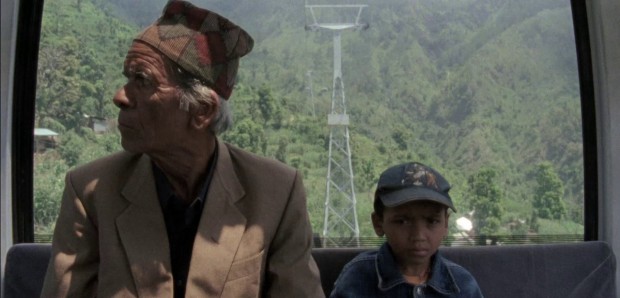
The year’s best documentary is also the most relatable on a global scale. While any average stranger would rightfully be alarmed if one stared at them for more than a few seconds, the latest documentary from the Harvard Sensory Ethnography Lab (responsible for the masterpieces Leviathan and Sweetgrass) provides an unprecedented yet simple viewpoint. Over the course of 11 single shots to or from a Nepalese temple, we travel with different passengers (including a trio of goats) and learn more about our fellow man, notably what it would be like to perhaps strike up a conversation with them. – Jordan R.
18. Winter Sleep (Nuri Bilge Ceylan)

Nuri Burge Celyan has cemented himself as one of the most intellectually stimulating filmmakers of recent years with his austere style that has drawn comparisons to legendary auteurs of cinema — Tarkovsky, Bergman and Rohmer, to name a few. This year he earned the coveted Palme d’Or prize with Winter Sleep, a solemn drama about an existentialist hotel owner in the Turkish countryside. While some may be turned off by the slow pace, long running time, and prosaic nature of the conversations, the performances and direction are all of the highest caliber and merit attentive viewing in order to absorb all the exquisite details this remarkable film has to offer. – John F.
17. Jealousy (Philippe Garrel)
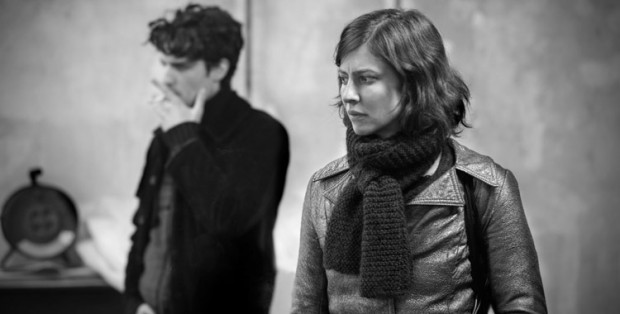
A search for unknowable romantic truths, causing a paranoia that runs deep in the heart of needing to love and be loved. Romantic follies not as great revelations, but simply the flows of life, edited without announcement. An autobiographical tale across three generations, compressed like a visit in the desert, only lasting so long before one must leave. Devastating in its subtle lightness, images and sounds like a vision of the remembered past, flashing through memory before turning off the light. – Peter L.
16. Nightcrawler (Dan Gilroy)
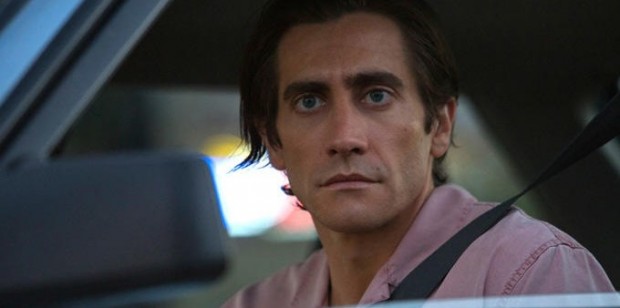
A stunning performance can elevate an ordinary script, yet Jake Gyllenhaal shows that first-time director Dan Gilroy has been absorbing what became of his various writing projects over the years. Here, Gilroy attacks the norm with his screenplay. We aren’t so much introduced to Gyllenhaal’s Lou Bloom as he announces his presence in the world of LA at night. Bloom is the anti-hero of the film, and yet you root for him throughout. Part of that is simply because he is the character we follow, but part of it is that he also exposes the deep-rooted reality of the news media. Bloom is a nightcrawler, who arrives on the scenes of accidents to record them with his camera and sell them to the morning news. But more than a skewering of the news, I found this to be a keenly precise character study of a man who succeeds precisely because he has a lack of empathy, a trait that might win you praise in other places. Gyllenhaal rarely blinks on camera, is visibly gaunt, and gives off an intensity that makes you uncomfortable. But the film is also brilliantly filled with touches of humor, evidenced by his long-winded rants that sound like they were stripped from a self-help book or the relationship he has with Nina (Rene Russo). Nightcrawler is intense, riveting, and darkly hilarious in all of the best ways. – Bill G.
15. Birdman (Alejandro González Iñárritu)
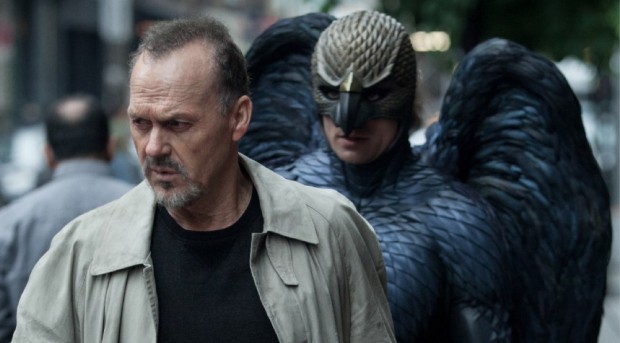
If there’s one movie I didn’t imagine would make my top 10 this year, it’s Birdman. For one, director Alejandro González Iñárritu‘s gorgeous misery porn generally isn’t for me. Second his ambitious dramedy was an all around enjoyable movie, but little more, on a first viewing. However, the film gets better and better over time. It’s about as subtle as the superhero movies it takes aim at, but also so funny, sad and imaginative. What makes Birdman a memorable experience isn’t the long take, but the relationship between Riggan (Michael Keaton) and his daughter, Sam (Emma Stone) — that’s what makes Birdman, both the character and movie, fly. – Jack G.
14. Closed Curtain (Jafar Panahi and Kambuzia Partovi)
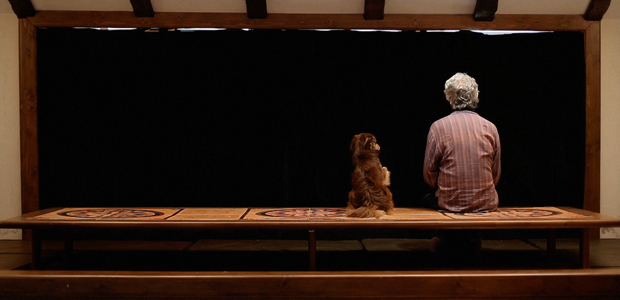
Perhaps it shouldn’t be such a shock that Panahi and Partovi were able to make such a remarkable work under such harsh restrictions (Panahi is currently banned from filmmaking), as Iranian artists have always found ways to innovate cinematic language in order to combat censorship, but the way Panahi and Partovi innovate here is downright revelatory. Closed Curtain is a consistently surprising and always-enjoyable film that can offer up mystery, tenderness, and intellectual provocation all at once, or at least smoothly transition among them. It is a genuinely surreal film (admittedly a critical bias) in which the dream and the imagination is equated with cinema, and it invokes digital technology to complicate the relationship between the image and the real / imaginary, seeking not just to adhere to but also converse with and update André Breton’s Surrealist Manifesto. It is a desperate, political film, a cry for help that rarely ever needs to directly address Panahi’s predicament. It is, in other words, everything cinema should be, as well as a statement about everything cinema can be. – Forrest C.
13. Listen Up Philip (Alex Ross Perry)
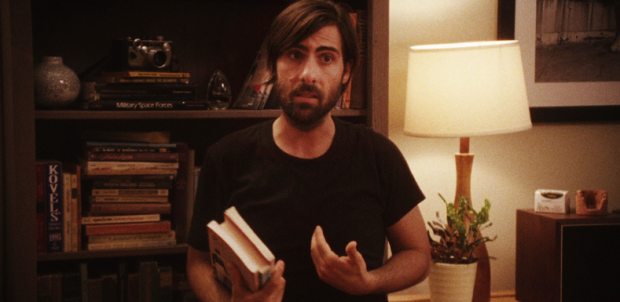
The slow-motion, bronze-burnished descent into personal desolation, itself suggested as some men’s only way of ascending to artistic greatness. Already-mild concerns that we’d never receive a proper adaptation of Roth are forever gone, for Listen Up Philip’s commitment to this idea — aided in no small part by Perry’s growing formal acuity — brings us as close as we’ll ever need to get. Zuckerman, Lonoff, and, at some turns, Sabbath do indeed haunt the film’s periphery, but less as a result of direct influence — more, I think, because we’ve only now confronted the wreckage they leave behind. – Nick N.
12. Gone Girl (David Fincher)
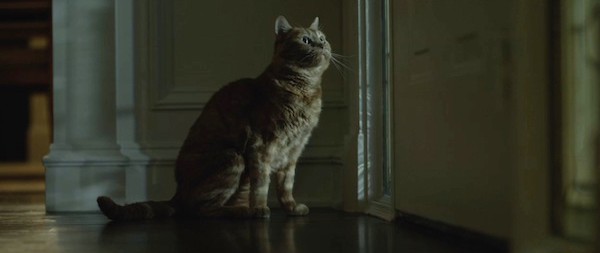
I’m not sure if Fincher taps into anything profound here regarding relationships or gender. He does, however, craft a visceral experience that pummels the viewer with its phantasmagoric narrative and images. As the noose tightens around Nick Dunne (an excellent Ben Affleck) shot by shot in the film’s first third, you realize you’re in the hands of a gifted filmmaker. Once the Gillian Flynn adaptation reveals what happened to the one and only Amazing Amy, played by Rosamund Pike, it releases some of the most unsettling and macabre sequences of 2014. – Zade C.
11. Enemy (Denis Villeneuve)
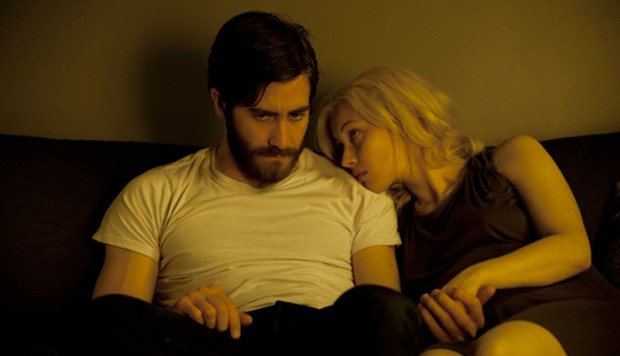
Upwards of five or six views in the past year and I still cannot speak with any real authority as to what this film is actually saying, specifically, but I know what it is saying to me. The defiance of a clear, precise, true read on the material is just one reason to love this twisty, poisonous tale. Jake Gyllenhaal (appearing for the second time on this list in a lead role) flawlessly and effortlessly fills two parts, not so much sides of the same coin as two possibilities of a single man. The images — derived from the alien aspect of the Toronto skyline — both complement the themes and distance the viewer, as though these characters inhabit a distant planet. The piss-and-smoke color of the world only adds to the strangeness, and, mixed with the engrossing story and labyrinthine thematic implications of the action, it all creates the perfect storm of a film. Not to be missed, and never to be forgotten. – Brian R.
10. Inherent Vice (Paul Thomas Anderson)
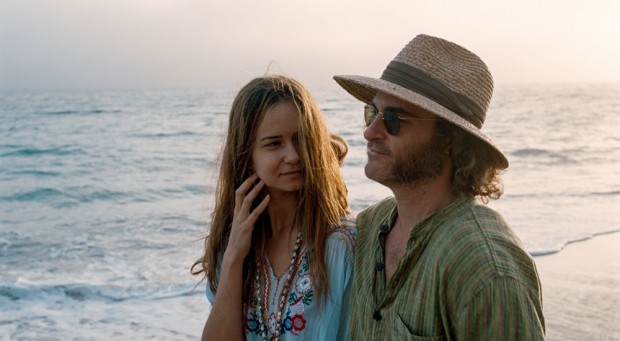
Often, my favorite film of the year creates a fully realized world in which each supporting character feels like they could lead their own film and every line of dialogue is one that can be endlessly pored over. Paul Thomas Anderson‘s Inherent Vice, like last year’s Inside Llewyn Davis, wildly succeeds on those fronts and many others. It’s a dense, keenly faithful adaptation of Thomas Pynchon‘s novel, at once sprawling in its far-reaching, paranoia-drenched plotting, and intimate, with the majority of scenes featuring prolonged, drug-laced conversations that superbly wrangle every word from the source material. With sublime casting across-the-board and unmatched direction relative to 2014’s other offerings, I look forward to endlessly revisiting this in the years to come. – Jordan R.
9. Ida (Pawel Pawlikowski)
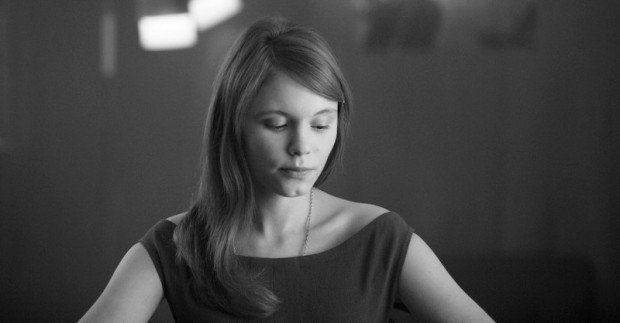
The road ahead of Anna winds from the shielding walls of a convent to the wilderness of her previously unknown homestead, but Ida’s real journey is both spiritual and emotional, as much for the audience as the young protagonist . Pawlikowski, who established himself as a filmmaker to watch with My Summer of Love, takes his craft to another level altogether. The use of the black-and-white format is never a simple stylistic device, but an exploration of emotional history. Shadows and fog, movement and stillness, captured in starkly lovely compositions that delve into the national tragedy at the heart of Ida, making it one deeply personal to the central characters. There’s an austere patience and visual medievalism that recalls Ingmar Bergman, but Pawlikowski, the luminescent Agata Trzebuchowska as Anna / Ida and Agata Kulesza as her steely aunt, make Ida a ravishing original. Haunting and simultaneously redemptive, the film’s final shots are bitter-sweet, as they release us from such a captivating dream. – Nathan B.
8. Two Days, One Night (Jean-Pierre and Luc Dardenne)

This is not quite as physical as some of the Dardenne brothers’ earlier, more visceral work. Think, for one thing, of the blindsiding opening of Rosetta, in which the camera darts and races to follow Émilie Dequenne as she tries elude the grasp of her peeved boss (Olivier Gourmet). Even the plot, which is inherently formulaic and intensely organized, is less natural-seeming than the previous stuff. But their gifts — shrewd framing (notice how Marion Cotillard is constantly separated from her co-workers by some kind of barrier) and genuine human empathy — are still evident throughout. After witnessing the character’s agonizing, compressed cycle of naps, wake-ups, phone calls, arguments, rants, and pill-popping episodes, Cotillard’s short phone call that ends Two Days, One Night carries the weight of the world. – Danny K.
7. Only Lovers Left Alive (Jim Jarmusch)
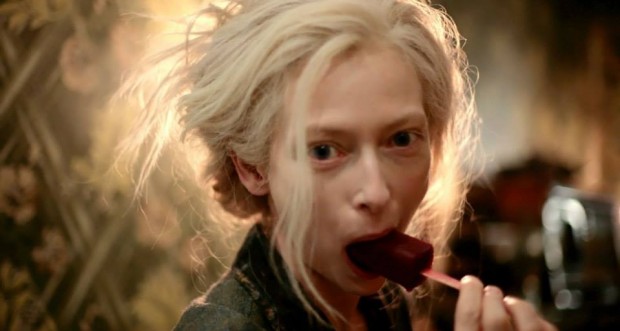
Enduring a climate of daily takedowns, contrarian posturing, cries of yearning for decades past, and rumination on what it all really means would usually ensure that any film operating on a similar wavelength while acting in service of one of the most worn-down genre staples this popular culture can offer sounds, in so many words, like an absolute fucking nightmare. But this particular marriage of auteur and being is as logical as they come, and questions of how easy it might have been to achieve the resulting effect are easily dispelled when wallowing in something of such deep, resonant beauty. – Nick N.
6. Goodbye to Language (Jean-Luc Godard)

A vision without meaning and toward being. Two binary romances collapse, and yet there remains one frolicking individual who is more than willing to leap into nature and see things anew. Truly a new vision of translating the moving image: Bazin’s Total Realism becomes Arnheim’s Total Cinema, and, with that, a new freedom away from the totalitarianism of the 20th century. Mary Shelley’s monster, after all, was the most pure being she created. – Peter L.
5. Whiplash (Damien Chazelle)
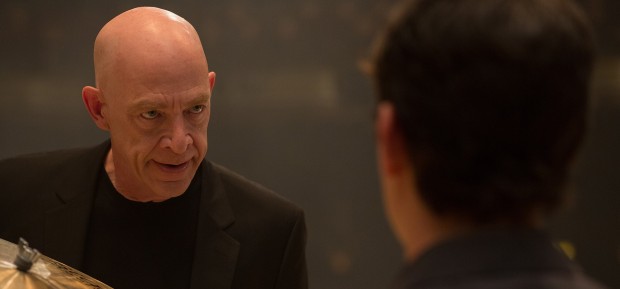
I didn’t give many films four stars this year (the top four entries here are it) and, until catching Whiplash, none hit me with the force that demanded I do so. The fact that it would be a breakout to finally give me that visceral punch to the gut makes it all the more astounding. Damien Chazelle‘s look into the dangerously volatile world of genius ran away with the 2014 crown before the last note of its mesmerizing, edge-of-your-seat climax cut to black. J.K. Simmons and Miles Teller‘s powerhouse performances highlight the whole, but this thing is so much more than its stellar parts. – Jared M.
4. The Immigrant (James Gray)
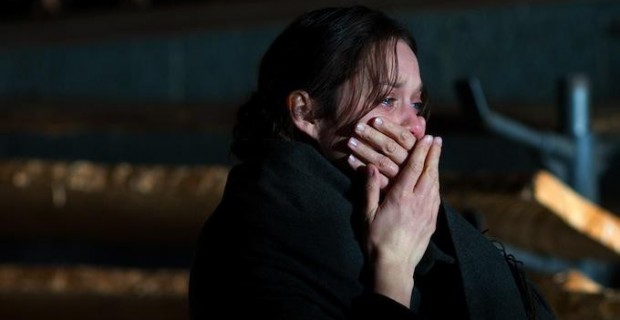
This is the one, the other Marion Cotillard-led film that will make you cry. James Gray deconstructs America’s foundational myth by linking it to cinema, setting his film in the era of popular melodrama (both on stage and on screen) and beginning with a shot of Lady Liberty’s back turned on her admirers. What proceeds from there is nothing short of stunning, anchored by two brilliant performances (Cotillard as Ewa, the immigrant forced into prostitution, and Joaquin Phoenix as Bruno, the one who forces her) and realized by a director who has now earned the same superlative. The arbitrary social forces that victimize heroines in melodrama are here seen as deeply systemic and rooted in the offending society, and Gray can only tease this and other tropes briefly before deconstructing and perverting them. The only generic truth that he finds truth in is the face, à la Griffith before him. Never is this clearer than in one of the year’s best scenes, when Ewa goes to confess. Gray is not content merely to undercut the “American Dream”; he’s taking the entire cinematic representation of it with him. – Forrest C.
3. The Grand Budapest Hotel (Wes Anderson)
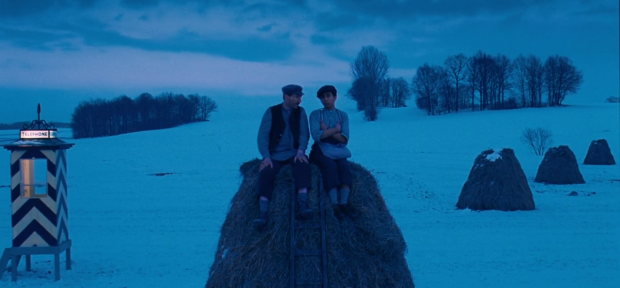
It’s easy to deliver criticism towards Wes Anderson for playing in the same self-contained sandbox time and time again, but that’s a misreading of what this continually inventive director is really up to. Anderson’s stylized, quixotic universe keeps expanding with each film, and in new ways, that then later become a part of his acknowledged bag of tricks. Very rarely is the director actually resting on his laurels, and if Moonrise Kingdom felt like it was creeping into the realm of the personal, Grand Budapest takes that sensibility and grafts it onto a vantage point that’s more literate and historical, arriving at a brand-new place. Forget all of that, though, and you have the year’s best sensory pleasure; it’s an astonishing treat to look upon this specific place, and to live in the skin of these characters. It isn’t every great film that beckons us immediately to return to it, that we feel lost the moment we leave it, but Anderson’s Budapest is such a film. You feel forlorn checking out of it, clinging to such wonderful memories. – Nathan B.
2. Under the Skin (Jonathan Glazer)
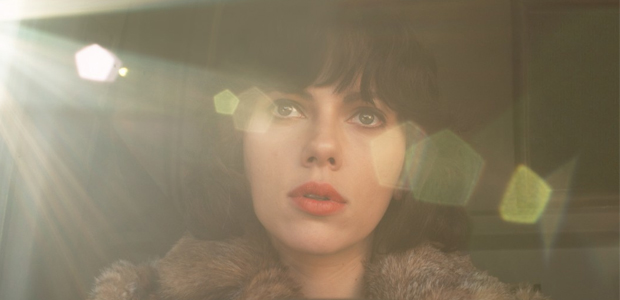
I saw Jonathan Glazer’s Under the Skin in April and never stopped swooning over. But what is it, exactly, that makes this film come in so far ahead of any other in 2014? Perhaps it is the way Skin makes the Scottish landscape look positively, well, alien. Maybe it is the incredible performance from Scarlett Johansson, an absurdly fascinating score, and the brain-searing imagery. Or perhaps it is how those elements come together for one entrancing experience. This is the most haunting, complex film of the year, and a sad, disturbing work of art. There are scenes that continue to linger in my memory months after that first viewing — chiefly the sight of a crying baby, alone on the beach. That sequence, and others, still resonate, and they will for some time to come. Quite simply, any year in which there is an Under the Skin is a great year for cinema. – Chris S.
1. Boyhood (Richard Linklater)
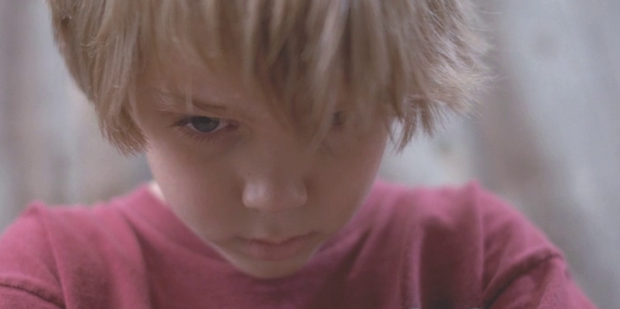
A revolutionary, ambitious masterpiece that frequently resists an episodic structure. A single film that, despite the 12-year duration of production, unfolds simply as life does: there are no transitions, the only clues as to what year we have being Linklater’s subtle soundtrack choices. Haunting in its details, Boyhood is very simply the story of Mason (Ellar Coltrane) living moment to moment, often moving through Texas with his mother (Patrica Arquette) who hasn’t quite figured things out and his occasionally bratty sister (Lorelei Linklater). Ethan Hawke beautifully plays the wayward father, himself in flux as he matures from musician to actuary. Often Mason does not understand the context of each moment, which is partly why I believe the film’s impact grows more profound upon subsequent viewings. A masterpiece in any year, Boyhood represents, above all, the very best in American independent filmmaking: strong storytelling often presenting conflict or danger as Mason experiments with drugs, drinking, sex, and, ultimately, heartbreak. Leaving him on the same ambiguous note it found him some 12 years and 165 minutes prior, Boyhood is a sublime, exhilarating, and emotional cinematic experience, and a new classic. – John F.
The Film Stage’s Top 50 Films of 2014 is made up from our staff lists. See each below, next to their respective favorite film of the year.
Boyhood (Bill Graham, John Fink, Zade Constantine)
Closed Curtain (Forrest Cardamenis)
Enemy (Brian Roan)
A Girl Walks Home Alone at Night (Nathan Bartlebaugh)
The Guest (Amanda Waltz)
Horse Money (Ethan Vestby)
The Immigrant (Nick Newman, Danny King)
Inherent Vice (Jordan Raup, Jack Giroux)
Jealousy (Peter Labuza)
Whiplash (Jared Mobarak)
Under the Skin (Dan Mecca, Raffi Asdourian, Christopher Schobert)
What is your favorite film of the year?
The Film Stage’s Top 50 Films of 2014 http://t.co/p9jzGptfH3 pic.twitter.com/2PnI28ytU7
— The Film Stage (@TheFilmStage) January 1, 2015

